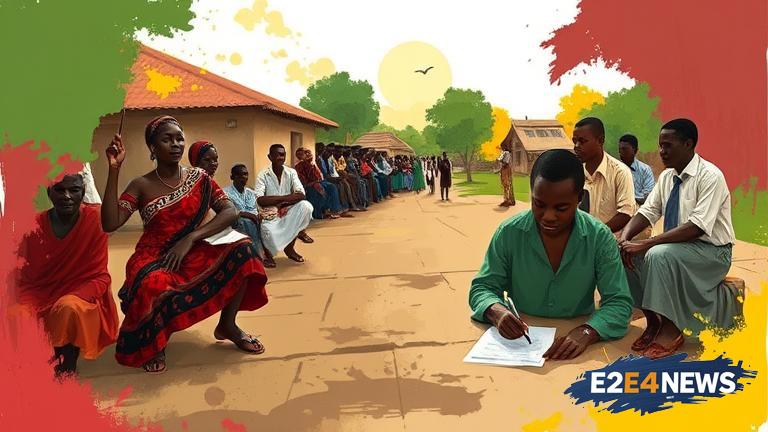Ghana has made significant strides in securing the West African Senior School Certificate Examination (WASSCE) in conflict zones, despite the challenges posed by malpractice. The country has implemented a series of measures to prevent cheating and ensure the integrity of the examination process. The Ghanaian government has worked closely with the West African Examinations Council (WAEC) to identify and address potential security threats in conflict zones. As a result, the WASSCE exams have been conducted successfully in these areas, with a significant reduction in malpractice. The government’s efforts have been praised by stakeholders, who have commended the proactive approach taken to address the issue. The WASSCE exams are a crucial milestone for students in Ghana, and the government’s commitment to ensuring their integrity is a testament to its dedication to education. The exams are taken by students in their final year of senior high school and are used to determine their eligibility for tertiary education. The Ghanaian government has also implemented a range of initiatives to improve the quality of education in the country, including the provision of training for teachers and the development of new curriculum materials. These efforts have helped to improve student outcomes and increase access to education, particularly in disadvantaged areas. The success of the WASSCE exams in conflict zones is a significant achievement for Ghana, and demonstrates the country’s commitment to providing high-quality education to all students, regardless of their background or location. The government’s proactive approach to addressing malpractice has also helped to maintain the integrity of the examination process, and has ensured that students are held to the highest standards. The WASSCE exams are an important part of Ghana’s education system, and the government’s efforts to secure them in conflict zones have helped to promote a culture of excellence and accountability. The exams are also an important indicator of the quality of education in Ghana, and the government’s commitment to improving education outcomes is reflected in its efforts to address malpractice. The Ghanaian government has also worked closely with international partners to develop new strategies for addressing malpractice and improving education outcomes. These partnerships have helped to bring new ideas and expertise to the table, and have contributed to the development of innovative solutions to the challenges facing Ghana’s education system. The success of the WASSCE exams in conflict zones is a testament to the power of collaboration and partnership, and demonstrates the importance of working together to achieve common goals. The Ghanaian government’s commitment to education is reflected in its budget allocations, with a significant proportion of the national budget dedicated to education. This investment has helped to drive improvements in education outcomes, and has contributed to the development of a highly skilled and educated workforce. The government’s efforts to address malpractice have also helped to promote a culture of transparency and accountability, and have ensured that students are held to the highest standards. The WASSCE exams are an important part of Ghana’s education system, and the government’s commitment to securing them in conflict zones has helped to promote a culture of excellence and accountability. The exams are also an important indicator of the quality of education in Ghana, and the government’s efforts to improve education outcomes are reflected in its commitment to addressing malpractice. Overall, the success of the WASSCE exams in conflict zones is a significant achievement for Ghana, and demonstrates the country’s commitment to providing high-quality education to all students, regardless of their background or location.





